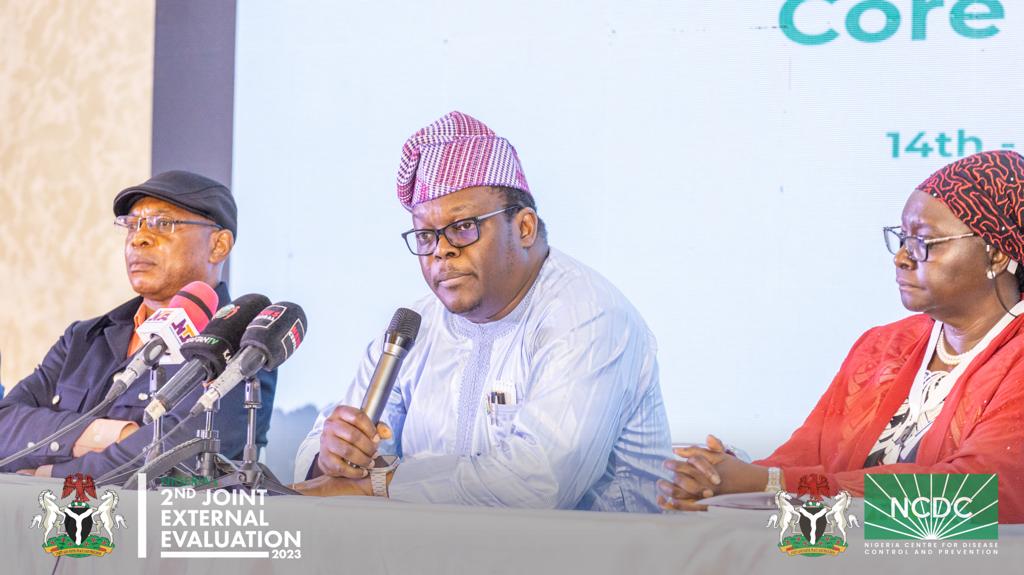Nigeria has scored a total of 54 % in the second Joint External Evaluation (JEE) of the country’s capacity to prevent, detect and respond to public health threats.
This is an improvement from the 39% it scored in its first JEE conducted in 2017.
The Director General of the Nigeria Centre for Disease Control and Prevention (NCDC), Dr Ifedayo Adetifa, made the disclosure while briefing newsmen at the end of the JEE exercise in Abuja.
The JEE involves a diverse team of experts, collectively evaluating a country’s preparedness and response capacities across 19 technical areas, under the guidance of relevant Ministries, Departments, and Agencies (MDAs). It is done every five years.
Abuja newspapers distributors get new excos
No amount of fake news can secure our stolen mandate, says Nasarawa PDP
The 2023 JEE makes Nigeria the second country in Africa and the third globally to conduct a second JEE.
Dr Adetifa said Nigeria recorded a 10% improvement in the area of prevention, 8% in the area of detection, 18% in the area of response, and greater improvements in other indicators.
He said progress made was not just by the NCDC, but by the country’s health security system which involves multiple agencies covering health, environment, and agriculture among others as well as sub-national levels.
He said, “So, significant progress has been made as an outcome of a lot of the investments that have gone into the health security space. Since the priority areas requiring intervention were identified following the 2017 JEE. “
He said the country would not rest on its oars but would focus on gaps that have been identified, and prioritise actions that have been recommended.
External Evaluator Lead, and Senior Advisor of the World Health Organization (WHO) Global JEE secretariat, Dr Hendrik Jan Ormel, urged the country to create a five-year risk-based National Action Plan for Health Security (NAPHS), and also develop an accountability framework for intra and inter-sectoral coordination and communication.
He said the country should also, “ empower and enable the implementation of the NAPHS starting 2024 to address the gaps in health security identified by the JEE, the lessons of the COVID-19 pandemic and other emergency disasters.”
He said another recommendation of the JEE team for Nigeria is for it to “coordinate multisectoral and private engagement for sub-national and multi-hazard health emergencies preparedness and response aligned to the national disaster management architecture strategy and plan.”

 Join Daily Trust WhatsApp Community For Quick Access To News and Happenings Around You.
Join Daily Trust WhatsApp Community For Quick Access To News and Happenings Around You.

